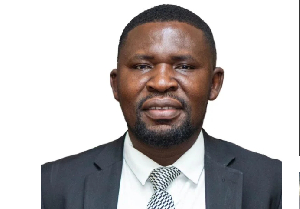 Enoch Gyasi Gyetuah, Executive Director of the National Council of Private Schools
Enoch Gyasi Gyetuah, Executive Director of the National Council of Private Schools
Enoch Gyasi Gyetuah, Executive Director of the National Council of Private Schools, has vowed to drag the government to the Commission on Human Rights and Administrative Justice (CHRAJ) over alleged discrimination in the school placement system.
This follows disappointing results from this year’s Basic Education Certificate Examination (BECE), where private school students reportedly underperformed despite significant investments in education.
He stated, “In the shortest possible time, you will hear that CHRAJ has invited the government to discuss this matter. We have finished writing our letter to petition CHRAJ over this matter to determine the way forward.”
According to Gyetuah, currently, the government allocates 30% of placements to public schools, with the remaining 70% shared between public and private institutions.
“Since 2018, the government has introduced a policy allocating 30% of placements. This means that when students complete their exams and are due for placement, the government reserves 30% of the total allocation in Category A schools for government school students, against private school students”.
Gyetuah criticised this policy as discriminatory, arguing that it undermines the efforts and resources invested by private schools.
He explained “Considering that a private individual can establish a school, pay teachers, and provide all necessary teaching and learning materials, yet the government claims that it’s students in (Public Schools) will be disgraced and their students will fail exams, it’s alarming”.
Speaking in an interview with Kojo Marfo on AbusuaNkommo at Abusua965FM, Gyetuah indicated that discussions with government officials and the Parliamentary Select Committee on Education have not yielded satisfactory results, prompting consideration of an injunction against the placement system.
He said “We have met with the government on this matter and with the Parliamentary Select Committee on Education. We’ve also held numerous press conferences about this issue. Having reached this point, we’re now considering placing an injunction on the school placement system and taking the government to court to determine if they have the right to take the actions they’re taking”.
Gyetuah emphasised that private schools have consistently met curriculum demands and provided necessary resources.
“From the outset of the new curriculum’s introduction, private schools have had access to the necessary textbooks to teach students. Moreover, we have gone to great lengths to implement the curriculum’s demands. Therefore, if private school students’ performance is poor after exams, it’s questionable.”
He expressed concern that the government’s allocation strategy unfairly favours public schools, potentially jeopardizing the integrity of Ghana’s education system.
He argued “If the government has agreed that learners in public schools perform poorly and thus require 30% allocation to attend Category A Schools, it’s easy to conclude that the government can also allocate a certain percentage for public schools during grading, unfairly favoring them over private schools, which is discriminatory”
“This trend threatens to undermine Ghana’s education system”, he opined.